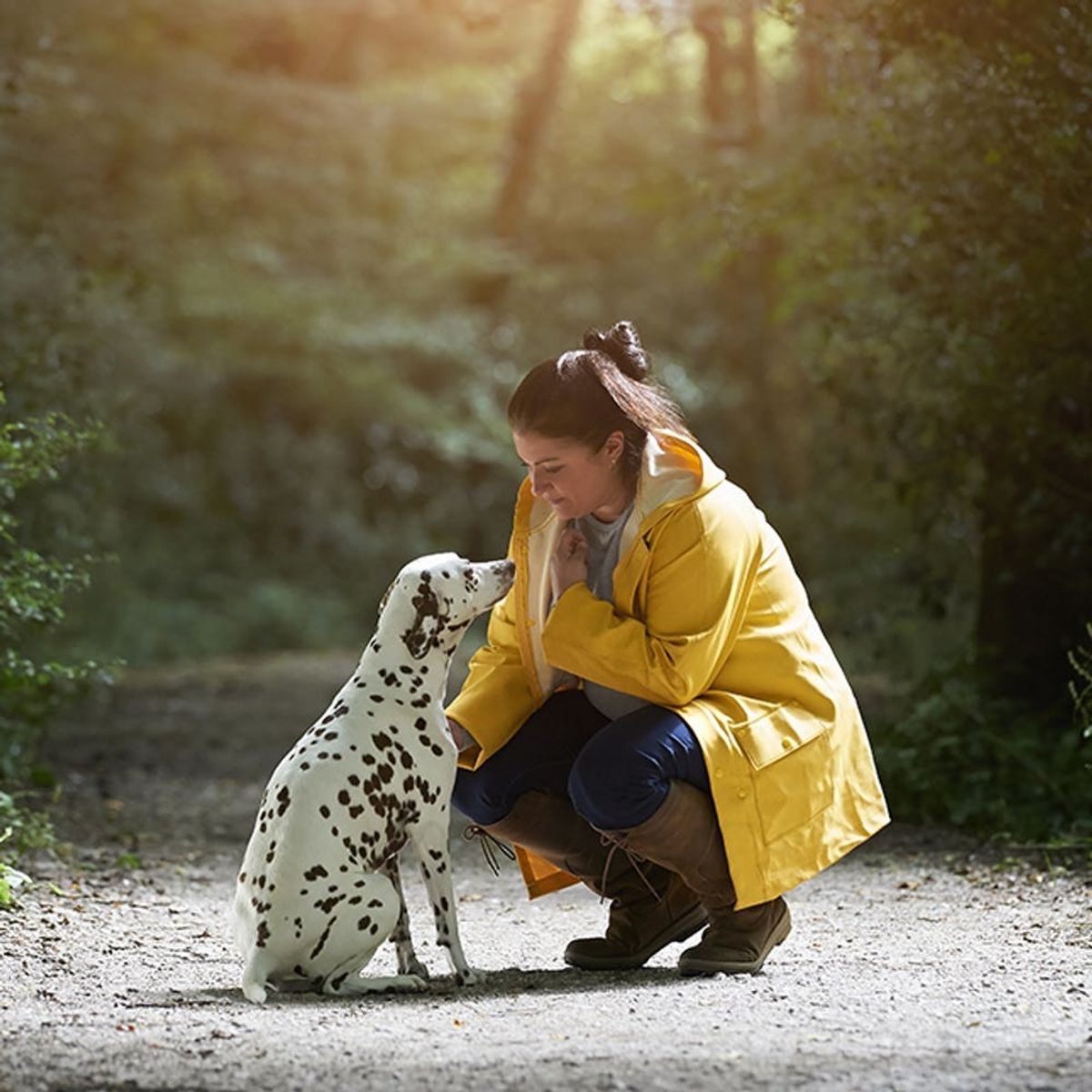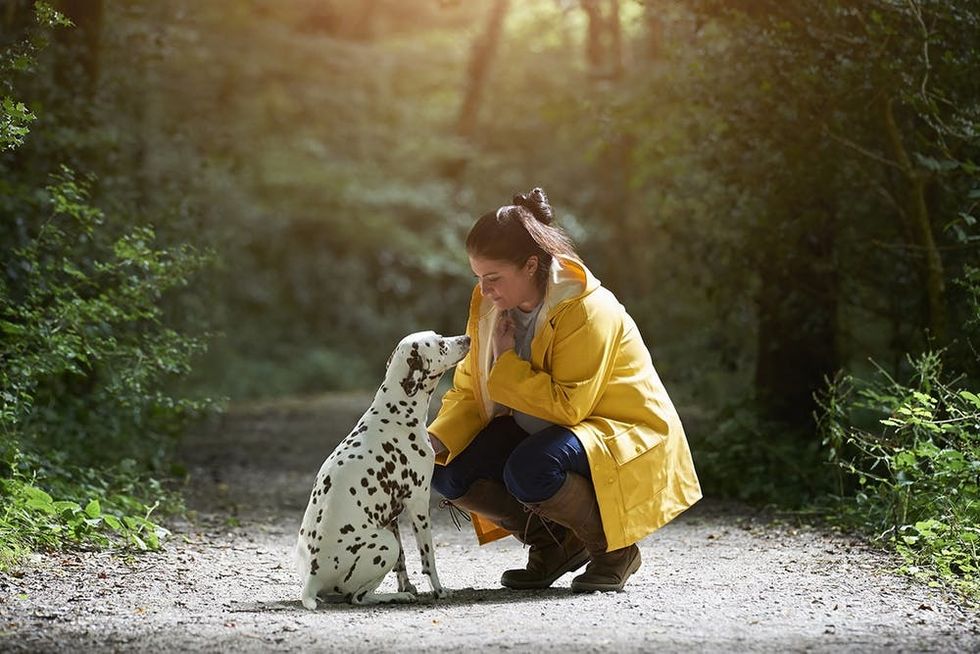It’s okay to not be okay.
This Is the Best Way to Cope With the Death of a Pet

Pets are, if you think about it, our furry (or scaly or feathered) best friends. In fact, according to the American Veterinary Medical Association, 85 percent of American dog owners, 76 percent of cat owners, and 57 percent of bird owners consider their animals to be members of their families. It’s why we throw them birthday bashes, coordinate our manicures with theirs, and, of course, try our hardest to keep them safe and healthy. But since their lifespans just aren’t as long as ours, most pet owners will experience the death of a beloved animal at some point. That’s why it’s so important that we’re equipped to handle the loss of what clinical therapist Afton Strate calls “a significant and unique relationship.” Strate, who owns Anchoring Peace Therapy, has spent the last nine years working with individuals who have recently experienced pet loss. She shared with us her best coping mechanisms.

1. Recognize the significance of the loss. Since the vast majority of pet owners think of their pets as family, it makes sense that you would mourn their loss the same way you would any other relative. And Strate says she encourages those who have lost pets to remember that. “In speaking with individuals who have experienced pet loss, it seems that it is a loss that is often misunderstood and minimized,” she says. “It can be very difficult for pet owners to seek help when loved ones might be sending a message that it’s ‘not that big of a deal’ that their pet has died.” But Strate assures us that it is. “Many individuals experience symptoms like trouble sleeping, appetite disturbance, excessive worry, stress, anxiety, guilt, and mentally replaying images of the traumatic events around their pet’s death.”
2. Prepare to be reminded of previous experiences of grief. Animals fulfill their owners in some many meaningful ways. “These animals are more than company; they can offer a special form of unconditional love and attachment that the individual may not experience in other aspects of their daily life,” Strate says. And that can mean a complicated grief. “Some individuals who I have worked with regard their pet as their ‘baby’ because they were never able to conceive children naturally,” she says. Don’t be surprised if the death of your pet brings up other losses and traumas in your life.
3. Surround yourself with a support system. Seek comfort in others who understand and sympathize with your situation, whether that is a therapist, friend, family member, or peers from a pet loss support group. “These pets have often been a part of important life events for the individual and have been a steady presence and source of support in someone’s life,” Strate explains. It makes sense, then, that the support that was, at one time, provided by the pet be sought elsewhere in their absence. “I want people to know that they are not alone in their loss,” Strate says. “And [urge] them to seek support to process their loss.”
4. Honor your pet’s life. Strate urges people to get creative with their commemoration. She recommends having a portrait painted, crafting a scrapbook, placing a memorial pillow on their favorite spot of the couch, planting a tree, or flower in their yard hangout, buying a memorial necklace, or ring. Or remember your animal by helping out others just like it. “Create a new tradition to acknowledge the life of your pet,” Strate suggests.”Observe National Pet Memorial Day on the second Sunday in September or on your pet’s birthday by donating time at a local animal shelter or starting a memorial scholarship in your pet’s name at a veterinary school.”
How have you dealt during this hard time? Let us know @BritandCo.
(Photo via Getty)


















